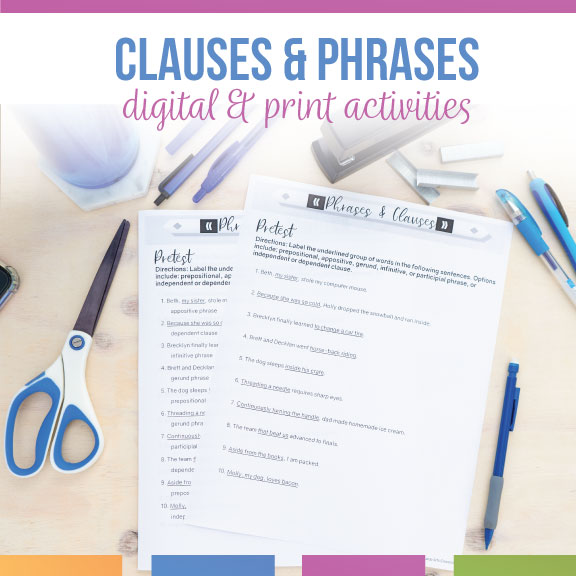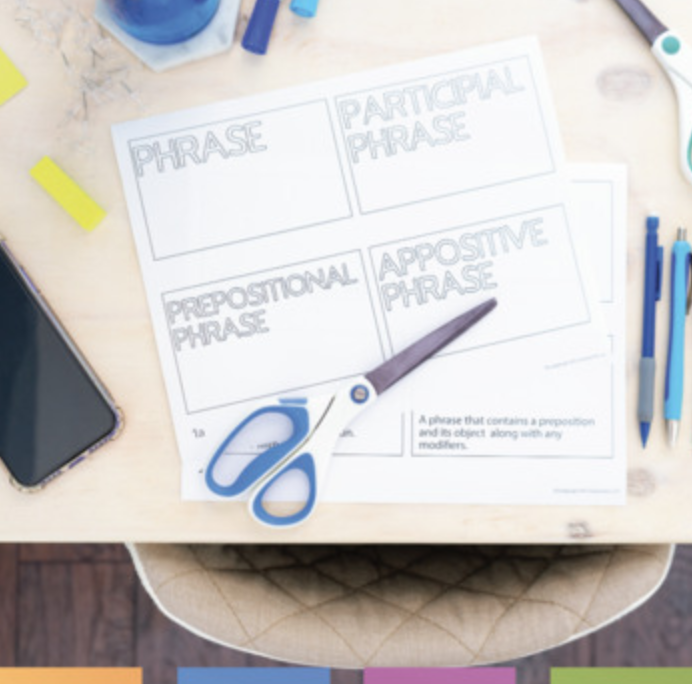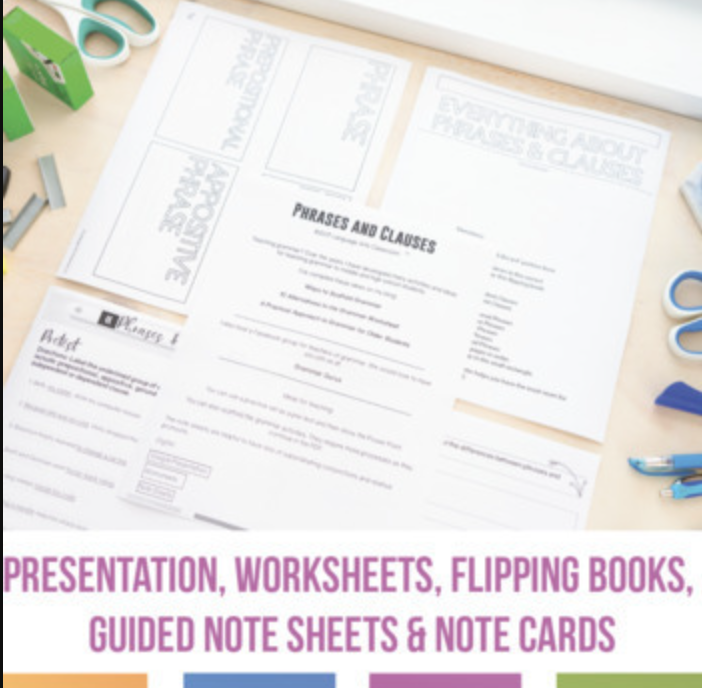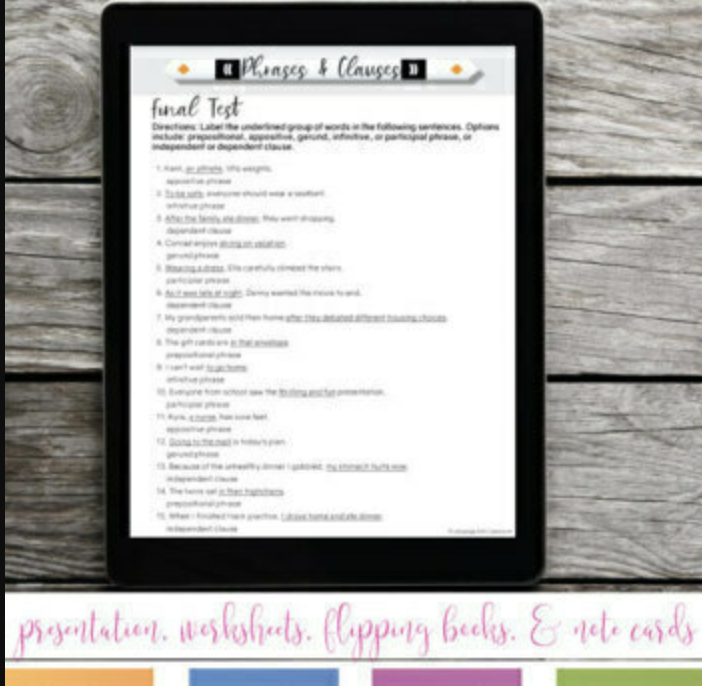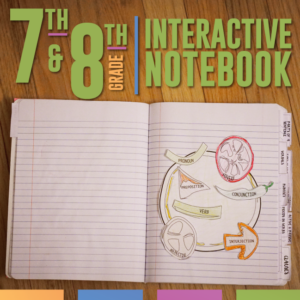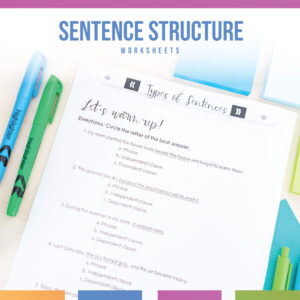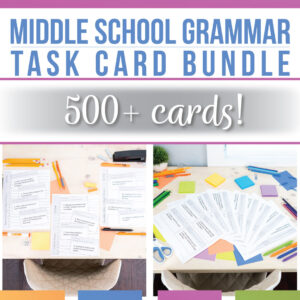Description
Phrases and clauses can look similar, and my students confuse them. Before working with punctuation, sentence structure, or incomplete sentences, you might need to scaffold your grammar lessons to a review of the differences between phrases and clauses.
This grammar bundle is in print and digital formats. Overall, these activities to clarify phrases and clauses are great grammar scaffolding tools.
This phrase and clause bundle includes:
☆ A grammar Powerpoint with over 30 slides. They cover types of phrases with examples, independent and dependent clauses with examples, and punctuation rules. It covers the core differences between phrases and clauses.
A student note taking packet. These guided notes follow the Powerpoint and has ample room for notes and additional examples. I stress that my students should write down the relative pronouns and subordinating conjunctions.
☆ A flipping book (pictured). Some students prefer to take notes with color.
☆ Flash cards.
☆ Over 100 practice sentences that are perfect for scaffolding. The grammar worksheets include:
→ A pretest.
→ Mentor sentences.
→ Practice sentences that require students to look at phrases and clauses in unique ways.
→ A paragraph.
→ A final test.
Answer key included for the grammar practice sentences.
Special notes about this phrase and clause download:
☆ You will receive links to make copies of the presentation, worksheets (including the pretest, mentor sentences, post test), and student note sheets. The flash cards and flipping book are not in a digital format.
☆ Please note that the Powerpoint does not differentiate between noun, adjective, and adverb clauses. It simply covers dependent and independent clauses.
☆ I left the Powerpoint editable. If you would like to remove the transitions or certain slides, you will be able to personalize it.
These phrase and clause activities will clarify the differences in these units of words. If your students struggle to identify subjects and verbs, sentence structure, or punctuate phrases and clauses correctly, these grammar activities should help.

